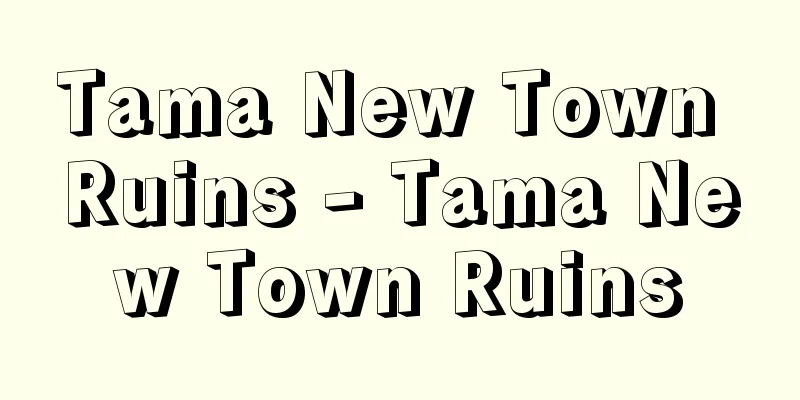Anti-business tax movement - anti-business tax movement

|
A movement of merchants and industrialists that continued from the First Sino-Japanese War to the First World War, demanding the abolition or reduction of the national business tax. In 1896 (Meiji 29), as part of a tax increase policy to improve management after the First Sino-Japanese War, the Business Tax Law was enacted, which taxed all commercial and industrial entities. However, the taxation method was based on capital amount, sales amount, number of employees, etc., and did not correspond to actual profits, which caused strong dissatisfaction among taxpayers from the beginning. The Federation of Chambers of Commerce repeatedly demanded the revision and repeal of the law, and by the summer of 1897, when the tax was imposed, disputes between tax authorities and taxpayers broke out nationwide. After tax increases during the Russo-Japanese War, in January 1914 (Taisho 3), the Constitutional Protection Association resolved to abolish the business tax and other bad taxes, and by February, a tax abolition movement centered on trade associations had developed nationwide, becoming a political focal point. The movement resumed after World War I, and in 1922 the movement led by the Japan Federation of Industrial Unions gained momentum, leading to the abolition of the Business Tax Law in 1926. [Keiichi Eguchi] Keiichi Eguchi, Study on the History of the Urban Petty Bourgeois Movement (1976, Miraisha) Source: Shogakukan Encyclopedia Nipponica About Encyclopedia Nipponica Information | Legend |
|
国税営業税の廃止ないし軽減を要求して、日清(にっしん)戦争後から第一次世界大戦後まで継起した商工業者の運動。1896年(明治29)日清戦後経営のための増税政策の一環として、商工業一般を課税対象とする営業税法が制定されたが、課税方法が資本金額、売上金額、従業者数などを標準として、実際の収益に照応しなかったため、制定当初から納税者の強い不満を招いた。商業会議所連合会は再三にわたって同法の改正さらに撤廃を要求し、賦課が始まった97年夏には税務当局と納税者との紛争が全国的に発生した。日露戦争期の増税を経て、1914年(大正3)1月憲政擁護会が営業税ほかの悪税廃止を決議し、2月にかけ同業組合を中心とする廃税運動が全国的に展開され、政局の焦点となった。運動は第一次大戦後に再開され、とくに22年には実業組合連合会による運動が盛り上がり、26年営業税法廃止に至った。 [江口圭一] 『江口圭一著『都市小ブルジョア運動史の研究』(1976・未来社)』 出典 小学館 日本大百科全書(ニッポニカ)日本大百科全書(ニッポニカ)について 情報 | 凡例 |
<<: Business Tax Law - Eigyozeiho
>>: Business trust - Eigyo Shintaku
Recommend
Magnolia (magnolia) - Magnolia (English spelling)
A general term for the world-famous flowering tree...
Marquis of Queensberry
… The repeated bans caused a sense of crisis for ...
Common bluebottle
This butterfly belongs to the order Lepidoptera, ...
Peronismo (English spelling)
An Argentine political movement named after its fo...
Kiyoshi Hiraizumi
A historian who made a great contribution to the ...
Perennial light difference - Einenkoukousa
...This amount is small at star rise and star set...
Sieve of Eratosthenes - Sieve of Eratosthenes
A method of finding prime numbers discovered by Er...
Carbon star
These stars have a clearly higher carbon content t...
Official Exhibition
This is a government-sponsored public art exhibit...
Kumano cedar
The name is given to cedar lumber whose transporta...
Horseback riding page - Kibakosho
…Many of the feudal lords of the Warring States p...
American Public Opinion Institute - American Public Opinion Institute
…While teaching at the journalism department at I...
Probabilistic reasoning
… In the above example where curry powder is not ...
Heurige
…It is similar to the Obon festival in Japan. Aft...
lamassu
...Then, this kind of being (the bull-shaped mons...
![Kashihara [city] - Kashihara](/upload/images/67cb32c3b0ebd.webp)








